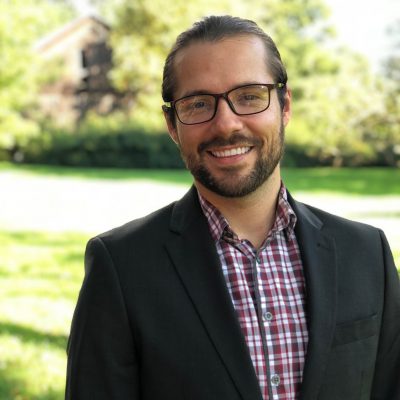Student Spotlight: Michał Matejczuk

April 15, 2019
Michał Matejczuk is a M.P.S. candidate from Ogrodniczki, Poland. After attending the Culinary Institute of America in Hyde Park, New York, he chose to pursue a master of professional studies program in international agriculture and rural development as a way to tie together his culinary knowledge with his work in the Peace Corps.
What is your area of research and why is it important?
Using my culinary prowess as a catalyst and inspiration for behavior change, I’m inspired to improve household nutritional models throughout the Global South through the use of traditional food preservation and fortification practices from around the world. These methods, employed during both dry and rainy seasons, can help to combat global food insecurity, child malnutrition, and support a healthier microbiome. I am conducting this research in Buvuma District, Uganda where my team and I are also implementing multiple impact projects that aim to improve livelihoods and increase climate resilience of rural women farmers. This research is also supported by Cornell’s Institute for African Development, which we couldn’t be more thankful for.
What inspired you to choose this field of study?
Food became both a refuge and a method to preserve my cultural upbringing throughout my childhood. Though my culinary journey originated in my grandmother’s root cellar, this memory remains with me not only as the start of a great passion for food, but also as the inspiration for my career in challenging food insecurity and improving public health conditions for other rural small-holder farmers. My tenacious interest in our global food system has taken me from professional kitchens with walk-in refrigeration units to a charcoal stove throughout many rural communities in Uganda as a Peace Corps Volunteer to Cornell University.
What does it mean to you to have been named a Luce Scholar?
I couldn’t believe it at first! To be quite honest, when I received the news I jumped so high that I managed to break off a piece of my ceiling lamp. Imagine trying to explain the near-concussion I almost had to the program director of the program on the other line.
In all seriousness, I extend an enormous gratitude to my family, friends, professors, mentors, the James Beard Foundation and its support, and to Cornell in providing me with the initial nomination and the knowledge I cannot wait to use in my fieldwork. I am truly humbled, and excited for the next few months and year in Asia as a Luce Scholar.
What are your plans for the year ahead as a Luce Scholar?
I complete my graduate program (MPS-IARD) in May, and then ship myself off to Uganda where I will be finishing my academic research and completing several impact projects in Buvuma, Uganda. After spending the better half of two weeks, I will come back to meet with my fellow cohort of Luce Scholars before we each depart to our respective placements.
As a Luce Scholar, I am looking forward to partnering with a local organization focused around my academic and career interests. I am also immediately drawn to explore the food preservation and fortification methods (i.e. fermentation of different fruits, vegetables, and grains) occurring throughout my future community, and analyze the regional differences depending on where you are within the country.
What are you most looking forward to during your year in Asia?
I am especially hoping to find a placement in Asia that will offer me an opportunity to explore a country’s rich diversity through its food system, and becoming a better advocate and narrator when sharing the cross-cultural experiences with those back home. My interests are quite diverse, but I am really interested in exploring parts of the country I am selected for that focus on alleviating poverty through various activities in social entrepreneurship, environmental conservation, and public health interventions that support household nutrition.
What are your hobbies or interests outside of your research or scholarship?
Some of the hobbies I do (and often wish I could do more of) include fitness (like running, weight-lifting, yoga), cooking and recipe testing (contributing largely to my professional cookbook and other literary work), and writing/ journaling (i.e. spoken word poetry, academic research, fiction). There is not enough time in the day to get around to all of my favorite hobbies, but oddly enough there are always some food products fermenting. I am also a father to my canine named Parker, who I brought back from my Peace Corps service.
Why did you choose Cornell to pursue your degree?
I knew that I wanted to attend Cornell even before I joined the Peace Corps. In fact, the MPS-IARD program was exactly what I needed to tie together all of my worldly experiences. It provided me with the flexibility in choosing courses tailored to my career interests, and possessed the community, academic rigor, and interdisciplinary approach that will help me fulfill my future goals.
Having continuously operated outside of my comfort zone, and with others in a culture very different from my own, I view my program at Cornell as being such a critical step in my academic development by furthering my research interests and understanding of our global food systems within rural farming communities.
